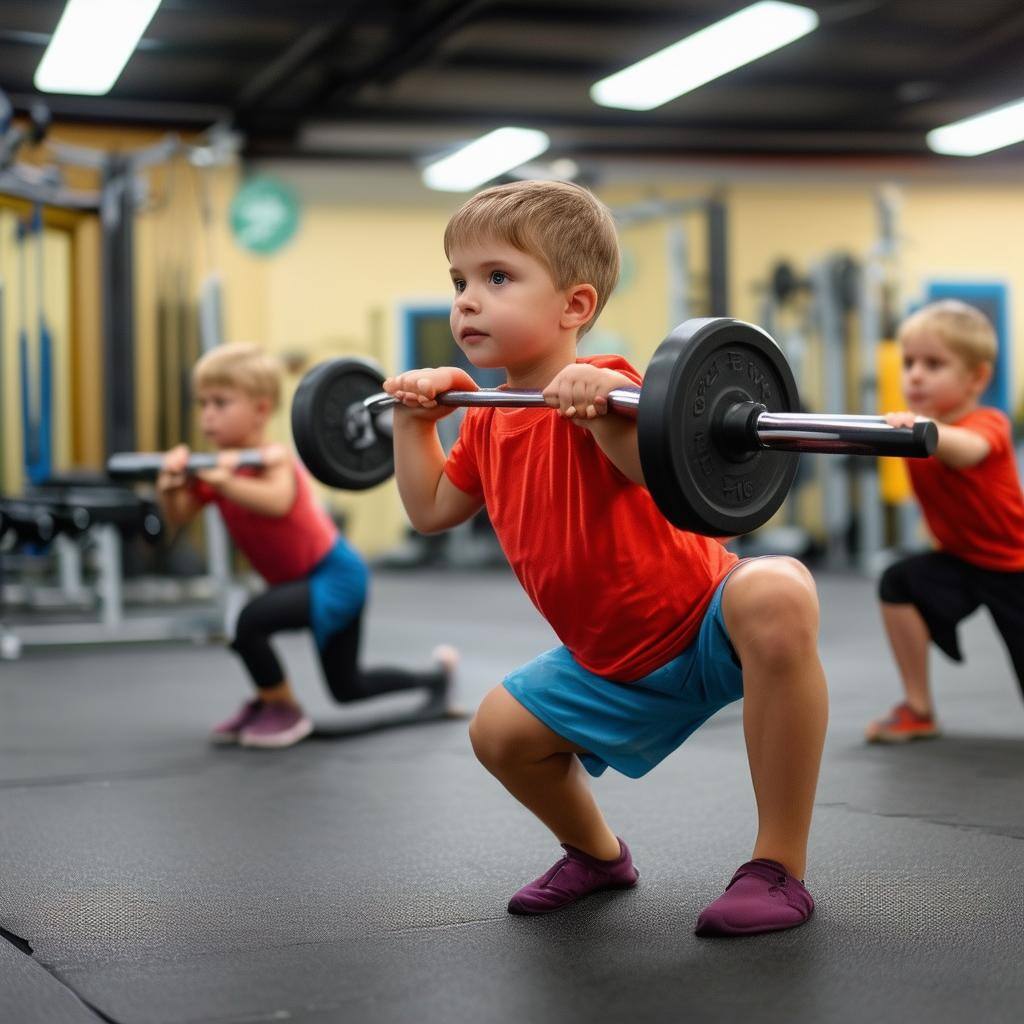
- October 14 2024
- Kadarius Jack PT, DPT
Kids and Strength Training: Building a Strong Foundation for Lifelong Fitness
In recent years, the conversation around strength training for kids has shifted significantly. Once
seen as an activity reserved for older teens and adults, strength training is now recognized as a
beneficial and safe practice for younger children as well. With the right approach, strength
training can help kids build confidence, enhance athletic performance, and develop healthy
habits that last a lifetime. Let’s explore the importance of strength training for kids and how to do it safely and effectively.
Why Strength Training is Important for Kids
- Promotes Overall Health: Engaging in strength training helps improve muscle strength,
endurance, and bone density. These benefits contribute to overall physical health and
can reduce the risk of injuries in sports and everyday activities. - Enhances Athletic Performance: For kids involved in sports, strength training can
improve performance by developing the necessary strength and power for various
athletic skills. It can also enhance agility, speed, and coordination. - Boosts Confidence and Self-Esteem: Mastering new exercises and seeing progress
can significantly boost a child’s confidence. Strength training empowers kids, making
them feel stronger and more capable, both physically and mentally. - Encourages Healthy Habits: Introducing kids to strength training can instill a love for
physical activity early on. By fostering a positive relationship with fitness, children are
more likely to continue being active into adulthood. - Supports Mental Health: Exercise, including strength training, releases
endorphins—often referred to as "feel-good" hormones. This can help reduce anxiety
and stress, improve mood, and promote better sleep.
Guidelines for Safe Strength Training for Kids
While strength training offers numerous benefits, it's essential to approach it safely to minimize
the risk of injury. Here are some key guidelines:
- Consult with Professionals: Before starting any strength training program, it’s a good
idea for kids to consult with a coach, physical therapist, or pediatrician. They can help
design a program that is age-appropriate and tailored to the child's individual needs. - Focus on Technique: Proper form is crucial in strength training. Kids should learn the
correct techniques for each exercise to avoid injuries. Starting with bodyweight exercises
can help them develop good habits before progressing to weights. - Use Age-Appropriate Equipment: For younger children, bodyweight exercises (like
push-ups, squats, and lunges) are ideal. As they grow older and more experienced, they
can gradually incorporate resistance bands or light weights, focusing on maintaining
proper form. - Incorporate Variety: Keep workouts fun and engaging by incorporating a variety of
exercises. This can include not only traditional strength training but also activities like
climbing, swimming, or playing sports that require strength and coordination. - Limit Frequency and Intensity: Kids don’t need to train like adults. Strength training
sessions should be limited to 2-3 times per week, allowing for rest and recovery.
Intensity should be moderate, focusing on technique and gradual progression rather
than lifting heavy weights. - Encourage a Balanced Approach: Strength training should be just one part of a
well-rounded fitness program. Encourage kids to participate in various physical activities,
including cardiovascular exercises, flexibility training, and skill-based sports.
Fun Strength Training Exercises for Kids
To get started, here are some fun and safe strength training exercises for kids:
● Bodyweight Squats: Great for building leg strength and improving balance.
● Push-Ups: A classic exercise that works the upper body and core.
● Plank Holds: Excellent for building core strength and stability.
● Jumping Jacks: Fun and effective for overall fitness and coordination.
● Animal Walks: Have kids mimic animals—like bear crawls or crab walks—to engage
different muscle groups while having fun.
Conclusion
Strength training can be a fantastic addition to kids' fitness routines, offering numerous benefits
for their physical and mental development. By focusing on proper technique, safety, and
enjoyment, parents and coaches can help children build a strong foundation for lifelong fitness.
As they grow stronger, kids will not only see improvements in their athletic performance but also
develop a love for physical activity that lasts a lifetime. So let’s encourage our kids to lift their
spirits (and some weights) as they embark on their fitness journeys
-1.png?width=129&height=50&name=Untitled%20design%20(24)-1.png)
Leave Your Comment
Many desktop publish packages web page editors now use model text
search for sites their infancy.